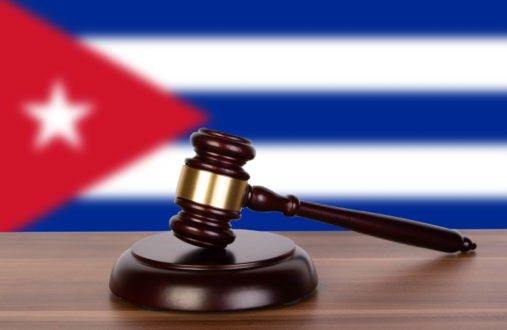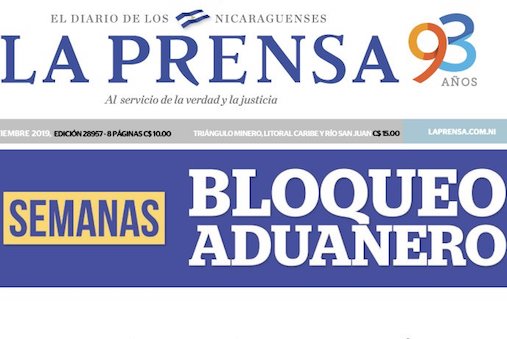Twitter users in Mexico City have angered authorities by tweeting the locations of roadside Breathalyzer checkpoints, and kidnappers and drug traffickers are using Facebook and MySpace to communicate. Federal lawmakers have responded by proposing a bill to restrict social networking sites and to create a police force to monitor them, GlobalPost reports.
Adding to a litany of recent attacks on press freedom, the Ministry of Communications and Information plans to ask prosecutors to punish Tal Cual for an editorial describing a Venezuela without President Hugo Chávez, ABC.es reports.
Members of the National Revolutionary Police arrested Juan Carlos Reyes Ocaña near his home in Holguín on charges of insult, disobedience, and illicit economic activity, EFE and Reporters without Borders (RSF) report. Reyes works for the Holguín Press news agency.
Judith Torrea, a Spanish-born reporter, has covered U.S.–Mexico border issues such as the drug trade, immigration, and border policy for nine years. She was attracted to Ciudad Juárez since her first visit 12 years ago, despite its naming by a Mexican watchdog group as the world’s most violent city.
Don’t expect relations between Hugo Chávez and the U.S. media to improve in 2010. Venezuela’s government long ago declared war on “media terrorism,” its term for news organizations that criticize Chávez from within and outside the country. Chávez recently slammed the U.S. magazine Newsweek for its predictions that in 2010 Chávez faces another coup and that his mentor Fidel Castro will die this year in Cuba.

Messages leaked by an anonymous group allegedly show that former Panamanian President Juan Carlos Varela sustained an operation during his tenure to carry out online attacks on journalists.

The building that houses Chilean newspaper El Mercurio de Valparaíso was set on fire in the midst of protests that have left a total 11 dead in the South American country as of Oct. 21.

Mexican newspaper Reforma released an audio recording in which a man who claims to be from an organized crime group threatened to “blow up” its newsroom if it did not stop criticizing the Mexican president.

Cuban journalist Roberto de Jesús Quiñones Haces was taken to prison on Sept. 11, just over a month after being convicted of the crimes of resistance and disobedience.

A group of 55 journalists, researchers, bloggers, activists, professors and others in Cuba have launched a petition demanding an end to repression against independent journalists and calling for guarantees for press freedom

Cuba is the only country in Latin America included in the list of 10 nations with the highest levels of censorship in the world, according to a report by the Committee to Protect Journalists (CPJ).

Nearly seventeen months after protests first broke out in Nicaragua, independent journalists in the country and international press advocates are repeating calls to protect media workers and freedom of expression.